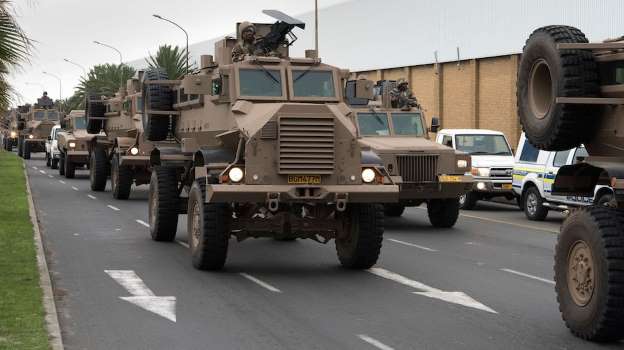Nyakallo Tefu
Confronted with a sharp rise in the number of coronavirus infections, African governments have imposed lockdowns, curfews and state of emergencies to curb the spread of the pandemic.
This includes South Africa, Rwanda and Tunisia, whose governments have announced strict measures to flatten the curve of rapidly growing number of infections.
On Monday evening, President Cyril Ramaphosa imposed a 21-day nationwide lockdown in South Africa starting on Thursday midnight, becoming the second country to announce a lockdown after Rwanda and Tunisia.
Under lockdown security measures, all shops, bars and restaurants will be closed and people have been urged to stay at home.
The governments have further announced that only essential services will operate normally, including hospitals, pharmacies and supermarkets.
Rwanda, which has 17 confirmed cases, has closed its borders completely, except for goods, cargo and returning citizens.
Rwanda has banned all unnecessary movements, public gatherings, schools, churches and airports.
This excludes groceries, retail shops, hospitals and other businesses that are deemed vital to the economy.
Tunisia, which last week imposed a curfew and a general lockdown from Sunday, has 89 confirmed cases and the government has deployed troops on the streets to enforce movement restrictions.
In South Africa, everything is expected to come to a standstill from Friday, with people will not be allowed to leave their homes except under strictly controlled circumstances such as seeking medical care, buying food or collecting a social grant.
Ramaphosa said people who would be exempted from the lockdown are essential services workers.
This includes emergency personnel, health workers, traffic officers, baking services and laboratory services.
Meanwhile, four countries have closed their borders in an attempt to restrict movements of people and curb the spread of the pandemic.
These countries include Zimbabwe, Nigeria, Ethiopia and Botswana.
Zimbabwe closed its borders on Monday after the country registered its first coronavirus death.
Senegal and Ivory Coast have declared a state of emergency in light of the new coronavirus pandemic.
Senegal imposed a dusk-to-dawn curfew while Ivory Coast says it will introduce gradual confinement measures.
Kenya currently has 16 confirmed cases while Senegal’s tally rose by 12 to 79.
Ivory Coast has recorded 25 cases.
The Democratic Republic of Congo began a 48-hour lockdown on Monday after two people who were suspected to have the virus boarded a flight from Kinshasa.
Troops have also been deployed in Lubumbashi, where streets are deserted and shops are closed.
The DRC has recorded 30 cases of coronavirus since March 10, which includes two deaths.
CORONAVIRUS LOCKDOWN EXPLAINED
According to the Sun newspaper, a lockdown is often referred to as mass quarantine, where residents are forced or advised to stay at home.
This involves restricting movements of residents and only allowing people to leave home attend essential work buy food or medicine or go to hospital.
If a person commits a criminal offence during a lockdown, the SA National Defence Force does not have the powers to arrest.
Only police have the emergency powers to arrest during lockdown operations.



